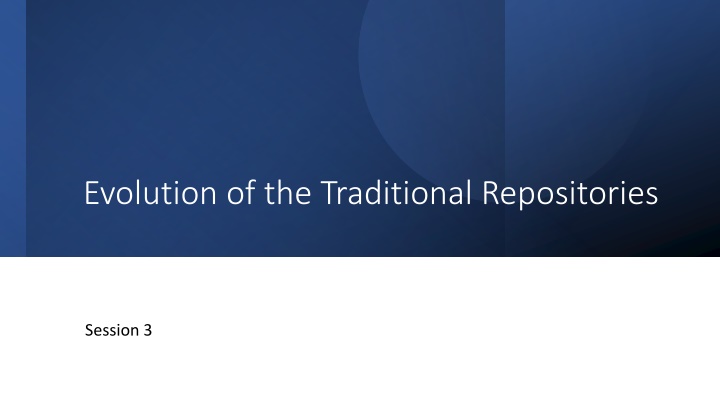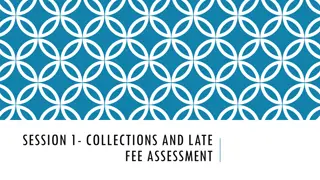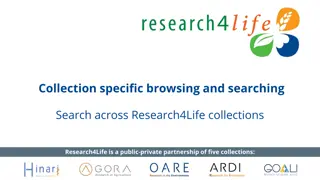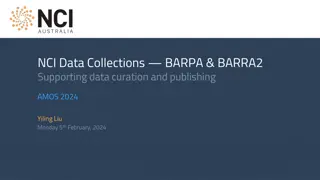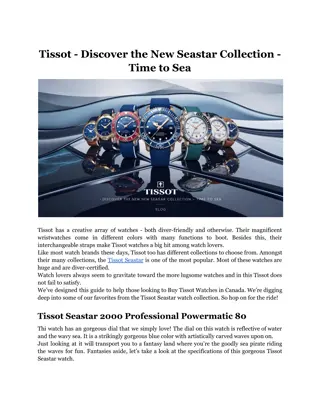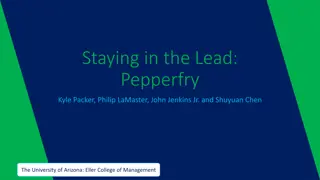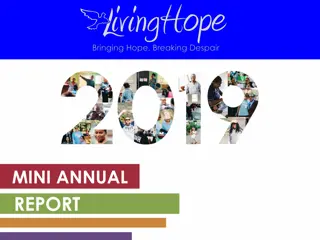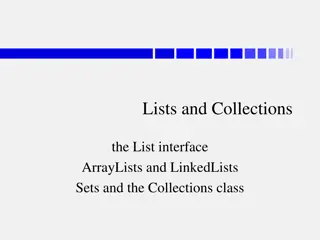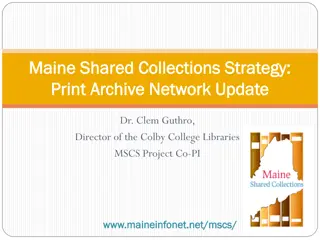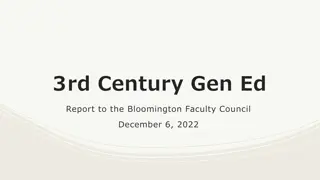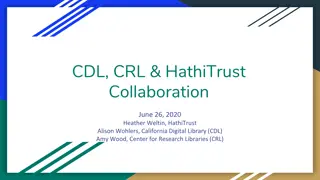Challenges in Bringing Together Different Collections
NIH traditional repositories face challenges in facilitating secondary work due to the lack of a single repository hosting all collections. Interoperability and adherence to FAIR data principles are key issues, especially for non-omics data types. The ongoing experiment aims to improve data interoperability for existing Type 2 Diabetes relevant datasets.
Download Presentation

Please find below an Image/Link to download the presentation.
The content on the website is provided AS IS for your information and personal use only. It may not be sold, licensed, or shared on other websites without obtaining consent from the author.If you encounter any issues during the download, it is possible that the publisher has removed the file from their server.
You are allowed to download the files provided on this website for personal or commercial use, subject to the condition that they are used lawfully. All files are the property of their respective owners.
The content on the website is provided AS IS for your information and personal use only. It may not be sold, licensed, or shared on other websites without obtaining consent from the author.
E N D
Presentation Transcript
Xujing Wang, PhD Division of Diabetes Endocrinology and Metabolic diseases (DDEM) Manages projects in the following areas: Utilizing big data and advanced data science technologies Developing and applying mathematical and computational approaches Beta cell death, stress and survival pathways Role as an NIH/NIDDK data steward : Chair of the DDEM data science WG Project scientist for the NIDDK information Network (dkNET), and the Human Pancreas Knowledgebase (PanKbase) program Mentor of DDEM DATA scholar(s) Serving as the NIDDK Rep on several transNIH WGs and programs Repositories and Knowledgebases Software tools Joint NIH/NSF program Smart and Connected heath in the era of Big Data and Artificial Intelligence Service on common fund programs: Bridge2AI: project scientist, science officer, and communication contact NPH (Nutrition for Precision Health): project scientist of it AI center
The challenges NIH traditional repositories face in bringing different collections together to facilitate secondary work No single repository can host all collections, same types or different One major challenge: Interoperability FAIR data principles: Findable, Accessible, Interoperable, and Reusable The challenge is more outstanding for: non-omics data types (DK specific) Examples: Common data types: Cross talk between CMD-KP (Common Metabolic Disease Knowledge Portal), Adipose tissue cell Atlas (stored on Broad s platform), PancDB (Pancreas DataBase), PancreAtlas Non-common (DK-specific) data types: Calorimetry data CalR, NORC, DRC, and MPMODs Major causes: Data standards and ontologies, software tools best practice and interoperability What we are experimenting: NOT-DK-23-022 Administrative Supplements to Support Collaborations to Improve Data Interoperability/Re- use for Existing Type 2 Diabetes Relevant Data Sets
Opportunities and new technologies Opportunities and new technologies Open collaboration, improving R&R Powerful data integration and mining Making knowledge machine actionable, integration of knowledge and data, Platforms that link data, tools, knowledge New discoveries that are not intuitive PanKbase Program (RFA-DK-22-018) But they will bring new challenges
